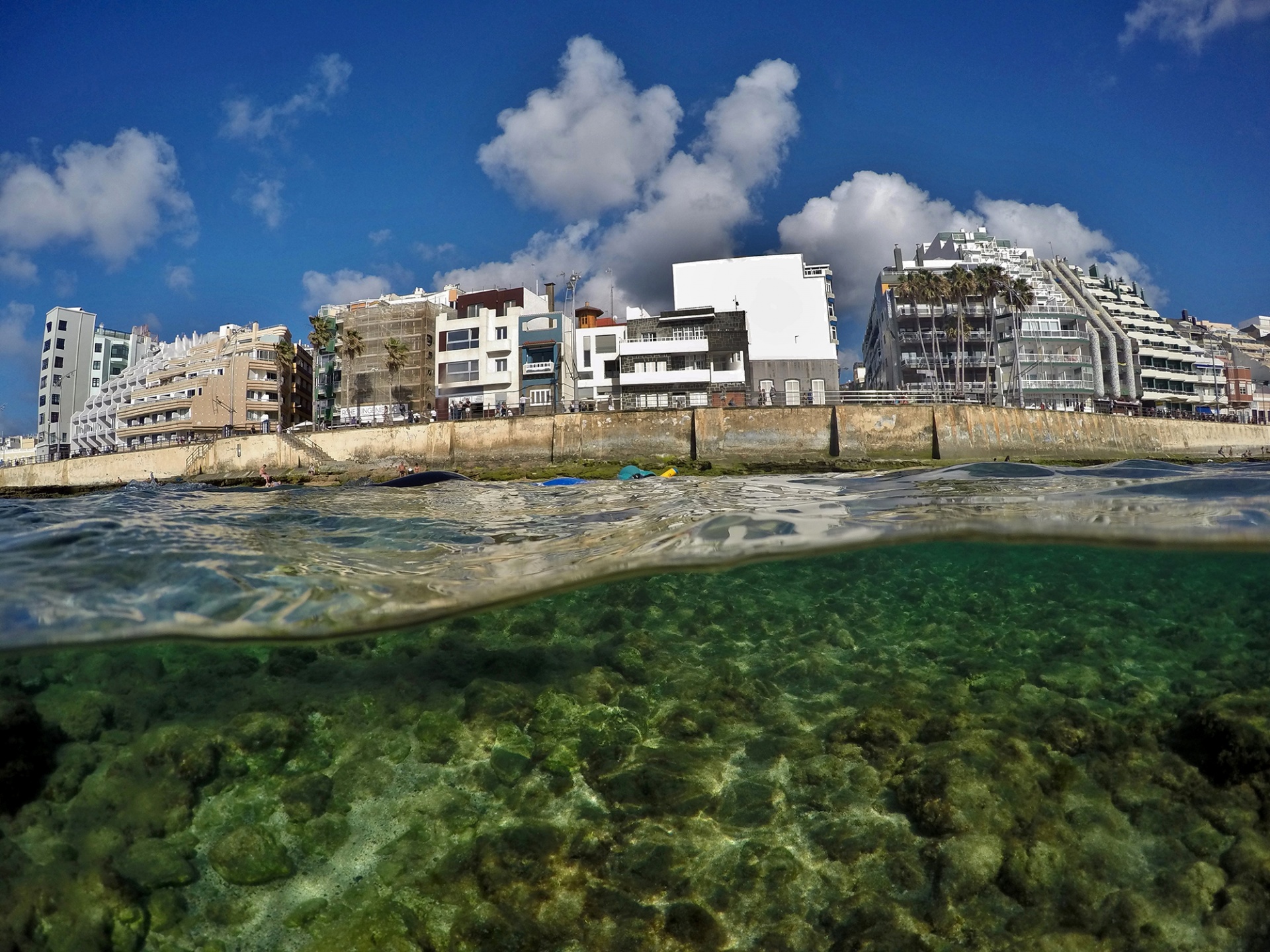
With the title 'Environmental Management on the Islands: Challenges and Sustainability', the institute of the ULPGC organizes in February a training course that deals with the challenges faced by islands such as Gran Canaria, with high population density and a large volume of tourism, to keep its growth while minimizing the impact on the environment, being crucial the diversification of its economy by reducing its dependence on fossil fuels
The sustainable development is one of the main challenges for the future in the Canary Islands, with special relevance in islands such as Gran Canaria, which has a high population density and aims to remain a world-class tourist destination. This must be carried out with the least impact on the island's environment. To this end, the diversification of the economy is crucial and this involves reducing dependence on fossil fuels and increasing energy production through renewable technologies (wind and photovoltaic).
This and other challenges will be the focus of a course called 'Environmental Management on the Islands: Challenges and Sustainability', which, from February 13th to 17th, is organised by the Institute for Research in Sustainable Aquaculture and Marine Ecosystems (ECOAQUA) of the University of Las Palmas de Gran Canaria (ULPGC) and which, within the framework of the 'Winter School', will be held in the Sala de Piedra of the Rectorate of the university entity.
For the researcher Rodrigo Riera, from the Biodiversity and Conservation group (BIOCON) of the University Institute ECOAQUA and member of the local organizing committee of this training together with the head of the BIOCON group, Fernando Tuya, the challenge of sustainable development while keeping the current standard of living on an island like Gran Canaria, with a high population density that wants to continue to be, in addition, The challenge of sustainable development while maintaining the current standard of living on an island like Gran Canaria, with a high population density that wants to remain, in addition, first trip as a world tourist destination, must go through "to establish an integrated management of resources and their exploitation, developing initiatives that promote this environmentally friendly development in the medium and long term and promoting the diversification of the economy towards niches that do not require a large amount of resources, as well as the optimization of current resources".
For this aim to be possible, says Riera, this economic diversification "must be based on the use of renewable energies, such as those that come from the wind or the sun, in order to reduce dependence on polluting fuels. But it is also crucial to promote the island's geographical location as a hub between continents, Africa and the Americas, through better and more efficient connections of port and airport services and communication networks. In addition, the promotion of environmentally sustainable agriculture and the sustainable development of aquaculture in the open sea are part of the initiatives to reduce our dependence on the outside world, and we must continue to work on them".
These, among many other issues, will be addressed in a course in collaboration with the University of Groningen (The Netherlands), aimed at all those interested in island ecosystems, mainly university students, technical staff and researchers.
In this sense, the islands are special cases for sustainable development. From a methodological and scientific point of view, they are ideal 'laboratories' for sustainable landscape management. Islands are unique in both their attractiveness and climatic vulnerability, they are relatively isolated and 'lonely' compared to continental areas, but they are also more dependent and need to be well connected to other areas.
This advanced course, which will be held from 9 a.m. to 5 p.m. and whose places are limited to 20, although with the possibility of extension depending on student request, aims to combine in an analytical way all these different perspectives, focusing on Gran Canaria.
The training has as its starting point this round island, of 47 kilometers in diameter and a surface of 1,560 km2, whose highest peak, the Pico de Las Nieves (1,949 meters), is located in its center. Gran Canaria's natural resources, such as the all year round good climate, have always been an inexhaustible source of happiness for the local population.
Gran Canaria, considered a miniature continent, is an example of unusual landscapes in the middle of a very diverse archipelago. For this reason, UNESCO granted the island the certificate of Biosphere Reserve, including almost half of its geography, to actively support the conservation of the pieces that make up this puzzle of natural scenarios that make up a very peculiar micro-world of nature.
The course will have a long list of prestigious speakers and moderators such as the director of the University Institute ECOAQUA, Ricardo Haroun, the coordinator himself, Rodrigo Riera, and the researchers Fernando Tuya, Andrej Abramic, Sandra Navarro, Lidia Robaína, Néstor Bosch, Víctor Cordero, Marcial Cosme and Yaiza Fernández-Palacios, from the University Institute ECOAQUA; as well as Godfrey Baldacchino, from the University of Malta; Dimitris Ballas, from the University of Groningen (The Netherlands); Carolina Peña and Abel Sanromualdo, from the Institute of Oceanography and Global Change (IOCAG) of the ULPGC, Julieta Schallenberg, from GRRES (Group for Research in Renewable Energy Systems) of the ULPGC, and Dr. Jin Taira, from the Tourism Engineering and Architecture Research Group (URSCAPES) also of the ULPGC.
For more information, please check the following links in English and Spanish.
For more information, please contact:
Beatriz Díaz – beatriz@mandarinacomunicacion.es - 620410871


